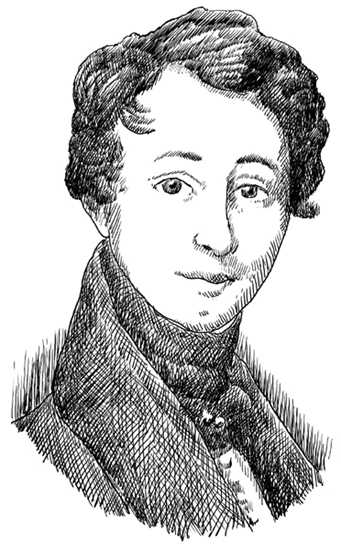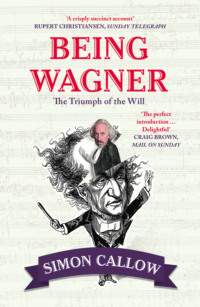
Полная версия
Charles Dickens and the Great Theatre of the World
His great consolation was to go down the Blackfriars Road of a Saturday night to seek out the travelling show-van, and ‘with a very motley assemblage’ marvel at the Fat-Pig, the Wild-Man and the Little-Lady; this carnival world of oddities and rejects now became part of his mental landscape. The little boy wandered all over the West End, buying himself a glass of ale, keenly studying life around him. ‘But for the mercy of God, I might easily have been, for any care that was taken of me, a little robber or a little vagabond.’ And then, quite suddenly, thanks to an unexpected legacy, John was released from the Marshalsea, and the family were reunited, all of them moving in to Mrs Roylance’s in Little College Street, where Charles had stayed before moving to Lant Street. A rare family outing took them all to the Royal Academy, to watch Fanny getting a prize. Charles must have had the afternoon off from the blacking warehouse, and the contrast between his situation and his sister’s overwhelmed him: ‘I could not bear to think of myself – beyond the reach of all such honourable emulation and success.’ He wept. ‘I prayed, when I went to bed that night, to be lifted out of the humiliation and neglect into which I had fallen.’ He notes that ‘there was no envy in this’; it simply sharpened the pain of his daily existence.
A new refinement had been added to his misery at Warren’s: the warehouse was moved from the dingy, dank obscurity of the Hungerford Stairs to Chandos Street in smart, bustling Covent Garden, just on the other side of the Strand; the boys were required ‘for the light’s sake’, to do their work in a room in which the window gave onto the street. The boys were very nimble at their task, and soon they found that a little audience would gather every day to watch them, like monkeys in a cage. One day, John Dickens happened to pass by and saw Charles on display. John said nothing at the time, but a short while later, he gave Charles a letter to deliver to James Lamert, who opened it in Charles’s presence, erupting so angrily when he read it that Charles cried ‘very much’ – partly because of the suddenness of the outburst, but mostly because Lamert was ‘violent’ about John. He told the boy, not unkindly, that he could no longer work there. The foreman said he was sure it was all for the best, and Charles went home, ‘with a relief so strange that it was like oppression’, no doubt because, just as he had not been able to understand why he had been sent to the blacking warehouse, he was scarcely more able to comprehend why he had been removed from it.
It was an extraordinary little piece of theatre that John Dickens had staged: instead of seeking Lamert out himself and airing his grievances with him, he sent the letter via Charles, knowing that Lamert would open it in front of the boy, become furious, and send him home. Perhaps the explanation lies in what happened next: Elizabeth went to Lamert the following day and asked him to take Charles back; this he agreed to do. No doubt John knew that Elizabeth would never approve of him going directly to Lamert and withdrawing Charles, so he had engineered a situation from which there could be no honourable retreat. And indeed, he dismissed Lamert’s placatory offer, loftily declaring that it was time for the boy to resume his schooling. The nightmare had come to an end, but Charles Dickens was changed utterly. As Forster magisterially remarks, though Dickens was deprived of teachers when he arrived in London ‘he was at another school already, not knowing it. The self-education forced upon him was teaching, all unconsciously as yet, what, for the future that awaited him, it most behooved him to know.’ It was indeed the perfect training to become the greatest novelist of his time. But at what price?
He had learned the lessons of solitude and self-dependency. He had known hunger, neglect, fear, loneliness, humiliation. He knew what it was to be powerless, and that to be free, he must acquire power. In the blacking warehouse he conceived, said Forster, a passionate resolve ‘not to be what circumstances were conspiring to make him’. He had taught himself to overcome his engulfing sense of worthlessness and failure, and to put on a brave face. He had suffered terrible injustice, he knew that. He had learned how to survive, by working hard, by not complaining, by making people laugh. He felt that he had been snatched from Eden, that what had seemed a natural state – his birthright, indeed – was a temporary benison that could not be depended upon. He was in mourning for this paradise he had lost, which as he turned it over and over in his mind became more and more important to him; it sustained him, but the memory of its loss was also a source of piercing anguish to him. To counter it, he had learned, at an astonishingly early age, how to nourish his inner life, by observing and responding to the world around him.
More than anything else, his twelve months’ hard labour at Warren’s Blacking Warehouse taught him that he could rely on no one but himself, not kindly, theatre-loving cousins, not father, not mother. James Lamert, though a well-intentioned fellow, filled with fantasy and fun, had so little understood Charles that he had proposed him for this brain-killing, soul-destroying labour. His father – though ‘as kind-hearted and generous a man as has ever lived in the world’ – had proved deeply unreliable in every important crisis Charles had faced. But with his mother, it was worse. ‘I never afterwards forgot, I never shall forget, I never can forget,’ he wrote to Forster, ‘that my mother was warm for my being sent back.’ That when he had at long last been reprieved, when the malign spell had finally been lifted from him, she should seek to cast him back into the scene of his misery, was incomprehensible to him. This betrayal – this utter inability to understand anything at all about him – permanently skewed his relationship with her, and rendered his attitude to women in general peculiarly complex. The relationship between him and his parents had lost its innocence, because now there was something unspeakable between them: ‘From that hour, until this, my father and my mother have been stricken dumb upon it. I have never heard the least allusion to it, however far off and remote, from either of them.’ But then, neither did he ever allude to it. He knew that to survive he must banish from his consciousness the period of pain and despair he had lived through, and that he must never mention it to anyone. The strength of mind, the self-control! – to batten down the hatches and forever lock off the sharp pain. ‘I have never, until I now impart it to this paper,’ he told Forster in a resoundingly theatrical image, ‘raised the curtain I then dropped.’ The denial came, of course, at a price. ‘All the danger he ran in bearing down and over-mastering the feeling, he did not know,’ said Forster. ‘A too great confidence in himself, a sense that everything was possible to the will that would make it so, laid occasionally upon him self-imposed burdens greater than might be borne by anyone with safety.’
He had dramatized his experience, establishing a dynamic that would thereafter underpin everything he ever wrote or did. ‘I do not write resentfully or angrily,’ he remarked, whether entirely honestly or not, of the autobiographical fragment he gave Forster, ‘for I know how these things have worked together to make me what I am.’ He was fourteen but he was already what he was. The spring was wound up, and it unwound with ever-increasing velocity over the next forty years.

Конец ознакомительного фрагмента.
Текст предоставлен ООО «ЛитРес».
Прочитайте эту книгу целиком, купив полную легальную версию на ЛитРес.
Безопасно оплатить книгу можно банковской картой Visa, MasterCard, Maestro, со счета мобильного телефона, с платежного терминала, в салоне МТС или Связной, через PayPal, WebMoney, Яндекс.Деньги, QIWI Кошелек, бонусными картами или другим удобным Вам способом.



